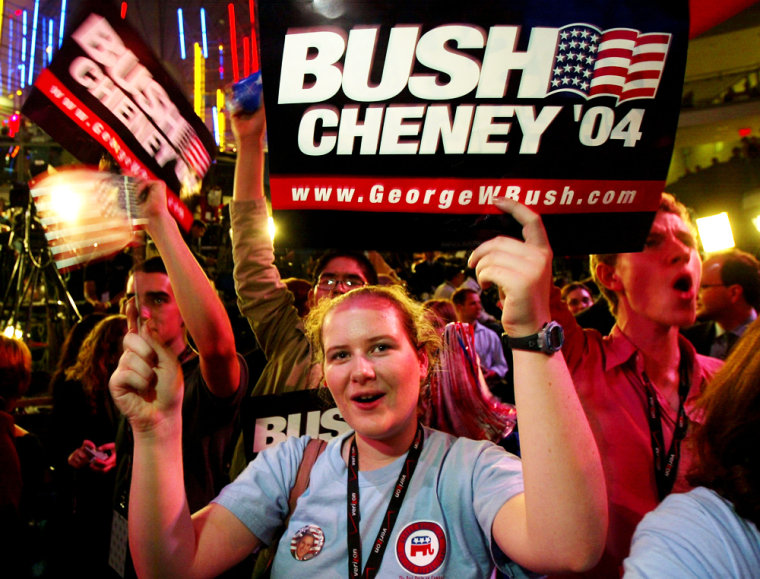November 2, 2004 could not come fast enough. Election mania had gripped the country since the end of the 2000 campaign, but it had really reached a fever pitch in the months leading up to this election. Passions were running so high that political arguments were breaking out in the most unlikely places: in grocery stores, bookstores, even churches. Strangers debated Iraq on subway platforms. Dinner parties came to screeching halts as soon-to-be-former friends debated the merits of Bush versus Kerry. Even the most previously apolitical people had an opinion.
By the time November 2 rolled around, everyone was primed to put those opinions into action. That morning dawned gray and brisk in New York City. Election day is one of those rare national, collective experiences that has you acknowledging strangers with a knowing look or a sympathetic nod. “We’re all in this together,” you seem to be saying, “even if you’re voting for the wrong guy.”
I walked into a polling place in New York City and voted for President Bush, a red vote awash in a sea of urban blue votes. I talked to both campaigns during the day; each was anxious. The race could go either way, and they knew it.
Exit polling data begin to trickle in, suggesting a wide Kerry lead. Top Democrats I spoke to were ecstatic; top Republicans were dejected, too stunned even to spin. “These polls can’t be right,” my fellow Republicans were asking each other. “Can they?” We were searching each other’s voices and faces for reassurance. Very little actual reassurance was forthcoming. By 7:00 p.m. Eastern Time, a veteran television producer greeted me with two words: “It’s over.” “Over?” I replied. “Over for whom?” “It’s over,” she said, “for Bush.” Never mind that not a single raw vote had yet been counted.
Sophisticated political observers watched early returns and admitted they had “no idea what was going on out there.” Television networks, wary of calling states too early for one candidate or the other, held back, even when 75% of precincts had reported and either Bush or Kerry was significantly ahead. Ever so slowly, the electoral map began to take shape. Bush’s apparent win was so counterintuitive, given the exit polls, that a frantic search began to find out why the exit polling data had been so off-the-mark. But then more states reported, more states were called, and even all-important Ohio made its choice.
On election night, I saw a range of emotion cross every face; there were whoops of joy, tears of disbelief, and stunned silence — on both sides, all day long. Election day 2004 was really a symbolic capstone to the most emotionally charged political campaign in recent history. It will be remembered as the race in which the political became the intensely personal, in which so many Americans were so emotionally invested in the outcome. All of that emotion had a polarizing effect. But it also mobilized us by getting us excited about politics again. And for the world’s greatest democracy, there is nothing more important.
